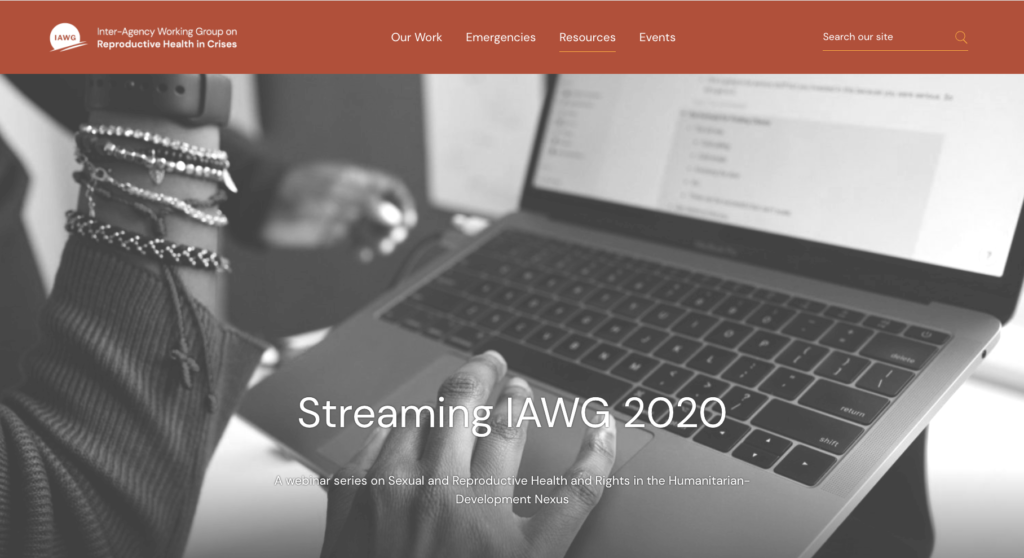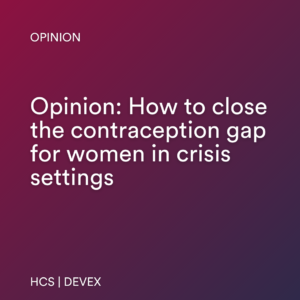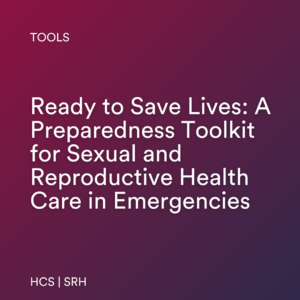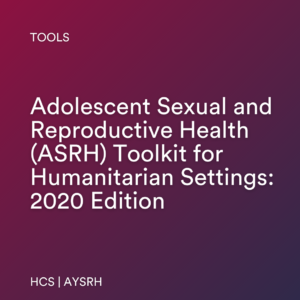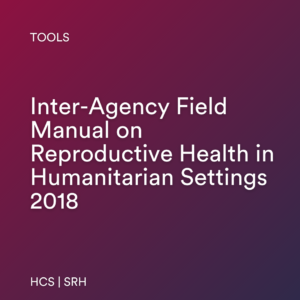Humanitarian & Crisis Settings (HCS)
Community Page
About the Humanitarian Subcommittee
The COVID-19 pandemic underscores that all countries are vulnerable to emergencies. All countries must therefore be ready to provide essential health services, including SRH, in the face of the strains on health systems. Even before the pandemic, an estimated 1.8 billion people were living in fragile contexts worldwide, including 168 million in need of humanitarian assistance, of whom approximately one in four were women and girls of reproductive age. The Humanitarian and Crisis subcommittee aims to bring attention to the shared goals/roles of all stakeholders including SRH and development partners in strengthening SRH and contraceptive access across the humanitarian-development nexus, particularly though improved preparedness and better transitions from crises to recovery.
Committee's Vision for ICFP2022
The humanitarian subcommittee seeks to:
- Advocate to improve access to comprehensive FP as a reproductive right from preparedness through emergency response, protracted crises, and recovery settings, in partnership with development actors including governments, donors, multilateral organizations, INGOs, civil society organizations, and crisis-affected populations.
- Increase awareness among key stakeholders, including donors and other priority audiences, that the prevention of unintended pregnancies is lifesaving, an objective within the MISP, and a standard part of acute emergency response.
Members, Partners & Supporters
The subcommittee is represented by a range of actors engaged in humanitarian health response including NGOs, INGOs, local and global initiatives, academic institutions, donor organizations, etc.
Get In Touch
If you are interested in knowing more about the ICFP Humanitarian Subcommittee, please get in touch.
Contact:
Theodora Varelis, tv2276@cumc.columbia.edu
When a crisis strikes, women and girls need lifesaving sexual and reproductive health (SRH) information and services, including family planning (FP). The Minimum Initial Service Package (MISP) for SRH, the internationally accepted minimum standard of care for SRH in emergencies, mandates the provision of FP services from the outset of a crisis.
Evidence shows that women and girls affected by crises want and need access to FP, and will use it when available. Evidence also demonstrates that it is feasible to provide comprehensive FP services even in the most challenging humanitarian settings with dedicated funding and efforts. Yet access to FP remains a critical gap in humanitarian settings.
The COVID-19 pandemic underscores that all countries are vulnerable to emergencies. All countries must therefore be ready to provide essential health services, including SRH, in the face of the strains on health systems. Even before the pandemic, an estimated 1.8 billion people were living in fragile contexts worldwide, including 168 million in need of humanitarian assistance, of whom approximately one in four were women and girls of reproductive age.
Please check back for details on upcoming events.
Also please check the Inter-Agency Working Group on Reproductive Health in Crises https://iawg.net/ website for more information and events related to SRH in humanitarian settings.
Featured Community Resources
Self-Care for Sexual and Reproductive Health in Humanitarian and Fragile Settings: Barriers, Opportunities and Lessons Learned
“Self-care offers an important and exciting opportunity to ensure access to life-saving sexual and reproductive health and rights (SRHR) services for all people across the humanitarian-development nexus.”
Learn more about barriers, opportunities, and lessons learned in self-care and SRHR within humanitarian & crisis settings in this report below.


